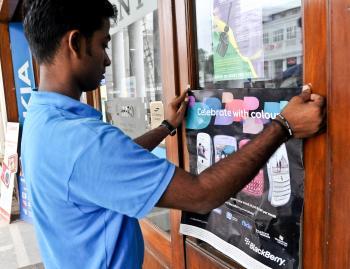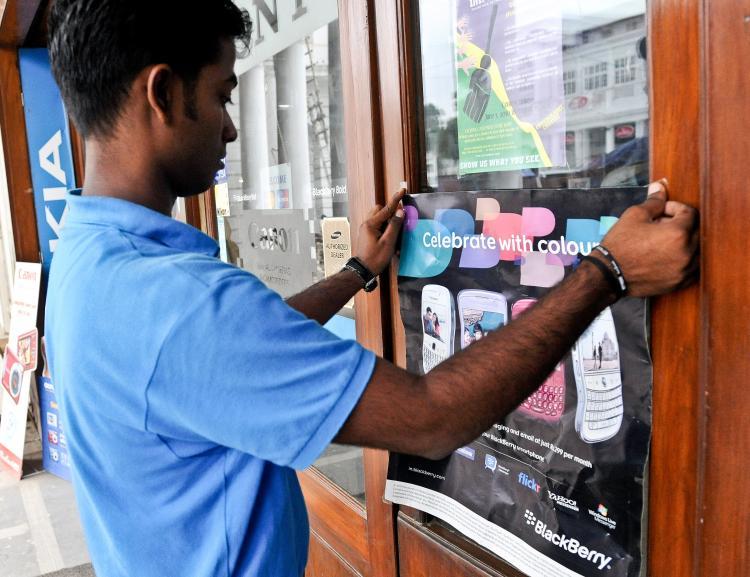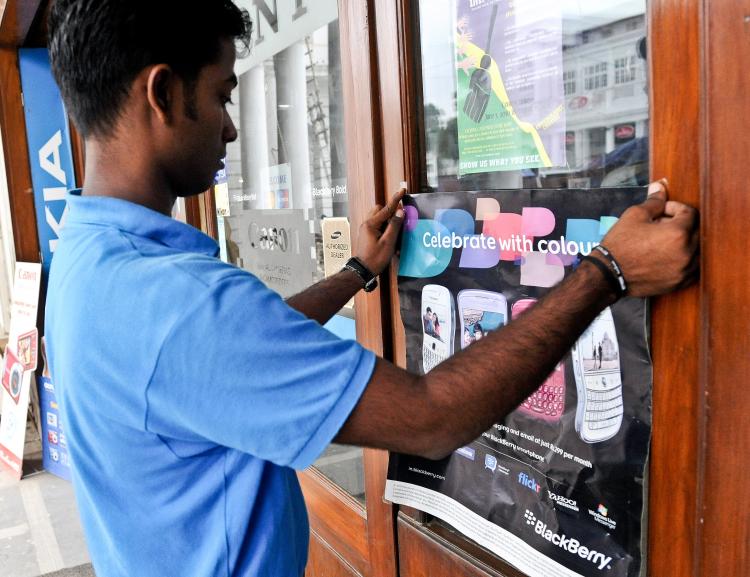BANGALORE, India—In an effort to calm the controversy over it’s BlackBerry phones, phone maker Research in Motion has agreed to provide Indian security agencies with “metadata” and “other relevant information” from it’s secure BlackBerry phones, enabling the government to legally monitor data from the phones, according to the Times of India.
India, along with Saudi Arabia, the UAE, and Egypt say encrypted data sent from BlackBerry phones poses a security threat. The Indian government is particularly concerned about the use of encrypted services by militants, since security agencies cannot monitor the messages.
‘Metadata’ is a summary of data attributes, it shows how long a text document is, who the author is, and when the document was written. Metadata shows picture size, color, depth, and when the image was made.
After discussions RIM, said it would provide information on the phones’ identification and the Blackberry server’s Internet address.
Indian security agencies, who were seeking uninterrupted access to BlackBerry messaging service, are less than enthused by RIM’s offer, according to reports.
In a statement issued last week, RIM has said it is impossible for it or any other third party to read encrypted data sent via BlackBerrys and that it could not share its customers’ encryption keys.
Indian authorities are not convinced by RIM’s contention. Officials last week said that if the RIM would did not allow contents of encrypted data to be monitored, the country has no other option but to put an end to BlackBerry services.
“We are very clear that any BlackBerry service that cannot be fully intercepted by our agencies must be discontinued. Offering access to data is part of the telecom licensing guidelines and has to be adhered to,” according to an Indian official quoted by The Economic Times on Aug. 4.
RIM has also come to a preliminary agreement with the Saudi Arabian government that could avert a ban on the BlackBerry in the country, according AP.
India, along with Saudi Arabia, the UAE, and Egypt say encrypted data sent from BlackBerry phones poses a security threat. The Indian government is particularly concerned about the use of encrypted services by militants, since security agencies cannot monitor the messages.
‘Metadata’ is a summary of data attributes, it shows how long a text document is, who the author is, and when the document was written. Metadata shows picture size, color, depth, and when the image was made.
After discussions RIM, said it would provide information on the phones’ identification and the Blackberry server’s Internet address.
Indian security agencies, who were seeking uninterrupted access to BlackBerry messaging service, are less than enthused by RIM’s offer, according to reports.
In a statement issued last week, RIM has said it is impossible for it or any other third party to read encrypted data sent via BlackBerrys and that it could not share its customers’ encryption keys.
Indian authorities are not convinced by RIM’s contention. Officials last week said that if the RIM would did not allow contents of encrypted data to be monitored, the country has no other option but to put an end to BlackBerry services.
“We are very clear that any BlackBerry service that cannot be fully intercepted by our agencies must be discontinued. Offering access to data is part of the telecom licensing guidelines and has to be adhered to,” according to an Indian official quoted by The Economic Times on Aug. 4.
RIM has also come to a preliminary agreement with the Saudi Arabian government that could avert a ban on the BlackBerry in the country, according AP.





